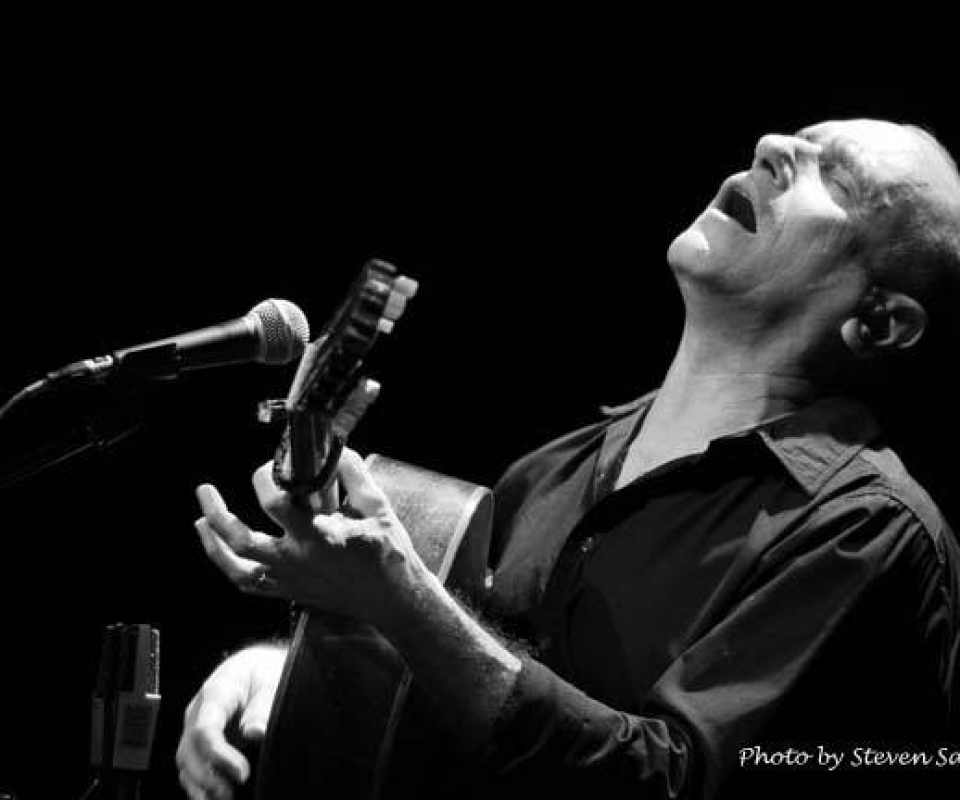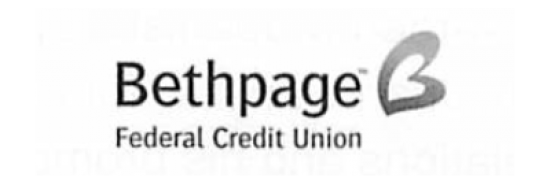A Flamenco Peace Beneath the Olive Trees
It was another case of prescient scheduling. On the heels of Prime Minister Netanyahu’s controversial visit to the US Congress, Port Washington’s Landmark hosted one David Broza (@DavidBroza), an explosive Israeli guitarist-singer-songwriter. Broza treated his audience to a genre-bending, boundary-blurring experience that – at least in this locale — eclipsed the current kerfuffle and relegated the politicos to a distant, rancorous clatter.
The fit, energetic musician walked briskly onto the Landmark stage for his first appearance on the stage Saturday night and launched into a unique style that was to alternate between the lyrical and the forceful. Singing first in Hebrew, a trilingual Broza (“If you don’t understand the words, just assume it’s about love”) introduced the few listeners not already aware of his work to a special musical recipe.
Mediterranean Recipe, Unstrung
The Broza recipe deserves a closer look. In many of his songs, the melody has a conventional melodic rhythm accompanied by a much faster, active accompaniment. In most popular music, pacing for melody and accompaniment is similar, except for predictable bridges and instrumental solos. For a solo performance like this one, Broza installs the lyrics on a rhythmically active, note-rich foundation, while his vocal style sticks to readily grasped melody lines with a traditional pop arc. He concocts this mix in part through a virtuosic nylon string flamenco style clearly inspired by the likes of Paco de Lucia and Manitas de Plata (both of whom died last year), and sometimes through Andalusian-influenced singing. Stir in equal amounts of North African dance, Romani (“Gypsy”), USA blues and straight-out pop.
Broza is an experienced performer who weaves stories of his personal journeys and collaborators throughout the evening. Just how facile he has become in musical storytelling becomes clear when Broza’s right hand keeps up a Flamenco tremolo even when his left reaches for a glass of water.
A steady stream of songs and narrative from a long career issued forth. Among many others, he performed “It’s All or Nothing” from the album of the same name, then described how he connected with the Madrid of his childhood through poet Pablo Guerrero – twenty-five years after he had first left Spain to return to Israel. To commemorate the closing of that circle, he performed their jointly penned song, “Crying to the Walls.”
Eventually Broza and Guerrero would collaborate on three albums, establishing a connection between Israel and Spain that, for many, became something about more than music. He performed “Isla Mujeres” from this brew, then ended the evening’s Madrid itinerary with the lovely “Abre la Puerta” from Parking Complete.
It was to be the most moving song of the night.
Flamenco to Blues, Madrid to Evanston
David Broza’s search for inspiration and influence would take him far from Tel Aviv. After Madrid, he spent time in New York City immersing himself in the shelves of the late Gotham Book Mart, but soon realized he would have to journey inward, toward what seemed to him to be the musical heartland of America. This took him to unexpected venues like Evanston, Indiana and elsewhere in the Midwest – at least as far as “my Hebrew would allow,” he quipped, and eventually further West to still lesser known towns like Nogales, Arizona (birthplace of Charles Mingus, poet Alberto Rios and this reviewer’s father).
Result? Several blues-inspired songs that embellished the shopworn three-chord frame with Flamenco spice. The last of these ended with Broza on his feet aggressively shaking his hapless guitar at the microphone to wring from it every last reverberation.
Broza and the Poets
While the evening demonstrated Broza to be a more than capable songwriter himself, Broza over his career has reached out to poets to inspire and broaden his work. This was a pattern that began early with countryman Yehonatan Geffen, later to Spaniard Pablo Guerrero and Arizona’s Alberto Rios. Broza’s 1989 album Away from Home featured his take on Theodore Roethke’s “My Papa’s Waltz.” In 1995, Stone Doors included a setting of Walt Whitman’s “O Captain! My Captain!” and Shelley’s “If You Don’t Kiss Me.” His 2002 release Painted Postcard featured Liam Rector’s “In Snow,” Elizabeth Bishop’s “One Art” and “Chileno Boys” by the aforementioned Alberto Rios.
On this night he also performed Judea Pearl’s “The Lions’ Den,” written for Pearl’s son Daniel on the anniversary of his death:
Never beamed a ray of light
So deeply to the core of darkness
Music, to estrangement,
Principles, to whims
Reason, to the impulse
One senses that Broza would have braved Spanish Nationalist guns to seek out Garcia Lorca, had they been contemporaries. He recorded a Paco Ibañez adaptation of Lorca’s “Mi Niña Se Fue a la Mar” and can be seen in a simple reading of a Lorca poem sans guitar.
Siddhartha Beneath the Olive Trees
Broza’s cultural instincts are in some ways reminiscent of the Daniel Barenboim / Edward Said West-Eastern Divan Orchestra project. Broza’s latest album East Jerusalem, West Jerusalem is yet another collaboration, this time with producers Steve Earle and Steve Greenberg and featuring an eclectic mix of Israeli, US and Palestinian musicians.
In a three-song encore rewarding the gleefully partisan Landmark crowd, Broza performed first “I Will Wait for You,” and closed with “Things Will be Better,” his 1977 hit penned with collaborator-poet Yehonatan Geffen.
The song’s preternaturally optimistic closing verse was a plea for peace beneath the olive trees — a prayerful goodbye to one evening’s whirlwind acquaintance: Broza’s Siddhartha, a sweetly anachronistic seeker of complete artistic immersion.
Next up at Landmark (@LandmarkonMain) is Broadway legend Ben Vareen, who will appear on March 13, 2015 at 8p.
Concert photos by Stephen Sandick Photography.
Related
- Academy of American Poets: “David Broza: Making the Music the Poem Wants“



